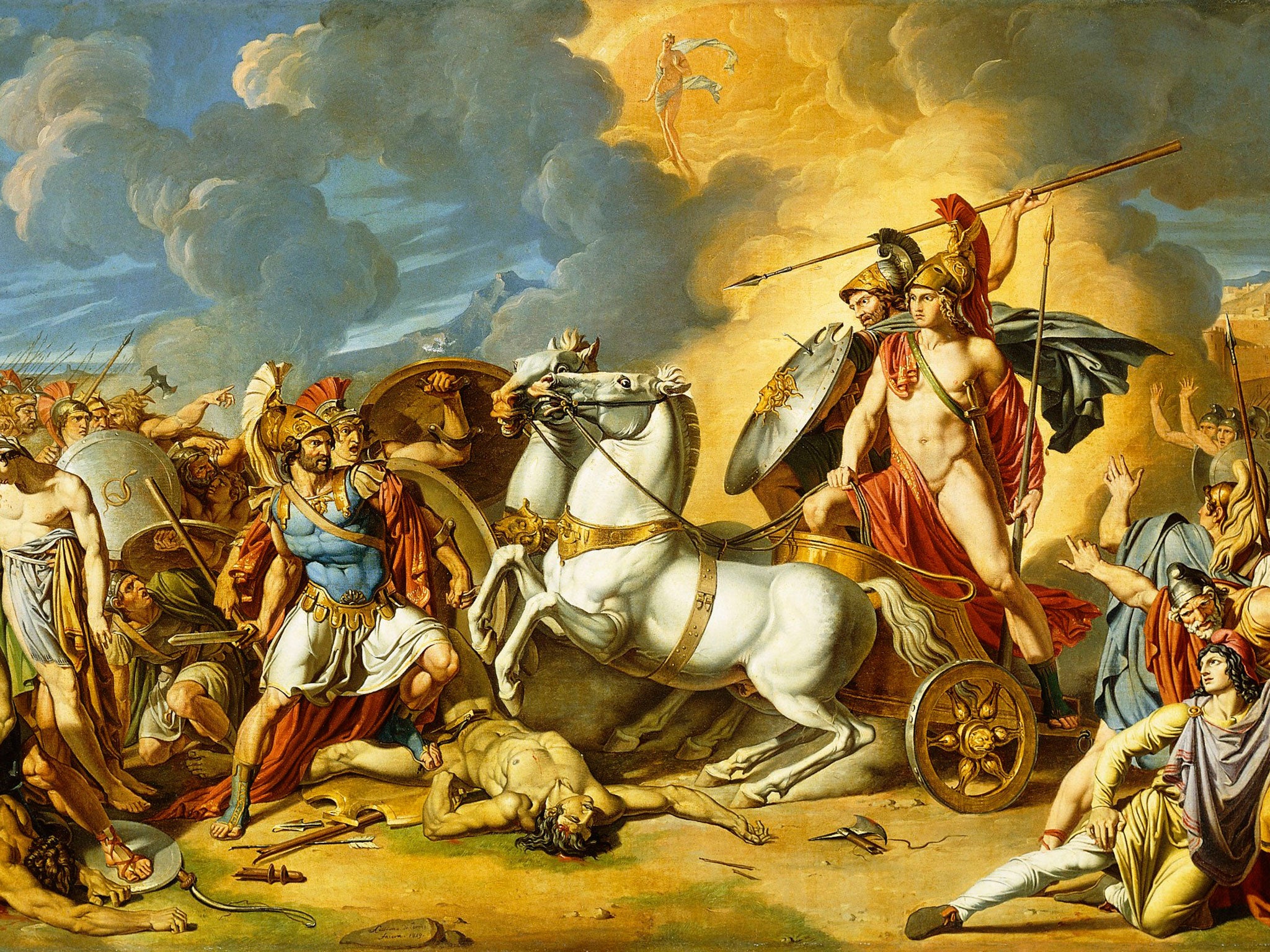Introducing the Ancient Greeks by Edith Hall, book review: What gave Greeks their 'Greekness'?
Hall provides a thoroughly readable and illuminating account of this fascinating people over a period of 2,000 years

It is a challenge for any expert to offer an appreciation of so complex a subject as the ancient Greeks. Among earlier attempts the books of H.D.F. Kitto and Paul Cartledge are impressive but this masterly survey by Edith Hall must now occupy pole position.
Wearing her considerable learning lightly, she provides a thoroughly readable and illuminating account of this fascinating people over a period of 2,000 years, from Homer's poems in the late eighth century BC, with their roots in Mycenaean and Phoenician culture, to the ideological conflict between the Greeks and Christians living under the Roman Empire, ending in the death throes of the old religion or "paganism" in the late fourth century.
Her adopted method is to select ten characteristics of the ancient Greeks which she claims they shared most of the time. These are "that they were seagoing, suspicious of authority, individualistic, inquiring, …open to new ideas, witty, competitive, admiring of excellence in talented people, elaborately articulate and addicted to pleasure." One might add militaristic but, as war was a natural state for the Greeks (and for most ancient societies), her list is admirably complete.
Each characteristic receives a chapter of its own which is set in a particular period of Greek history, ranging from the seafaring skills of the Mycenaeans from 1600 BC to the time of the Trojan War to the triumph of Christianity under Constantine the Great, with, at the centre of this process, the brilliant intellectual achievements of Athens in the fifth-century BC. These qualities of mind are illustrated by well-chosen passages from literature and historical writing, translated by the author herself.
Recognising that the Greeks were primarily seafarers (the uniquely high proportion of coastline to land area virtually forcing them into overseas expansion) Hall takes us from Spain to India, from the Caucasus to the lower reaches of the Nile, stressing at all times the Greeks' "cultural elasticity" and finding in their language, at once flexible and beautiful, and in their universal familiarity with certain poems composed in it, the essence of what gave the Greeks their unique "Greekness". She also recognises the influence of Greek literature on modern forms of entertainment such as the cinema, citing the example of Pier Paolo Pasolini's's Medea (1969) which uses the barbarian culture portrayed in Apollonius' epic poem, Argonautica, to satirise western cultural imperialism.
The author does not make the mistake of thinking the Greeks were naturally superior to other races, either intellectually or physically, but argues that it is no ordinary achievement to function successfully as a conduit for the achievements of other ancient peoples. Yet, when all allowance is made for the inheritance of ideas, the range and depth of Greek invention is breathtaking, from their creation of democracy and tragedy to their architecture and sculpture, not forgetting the philosophical achievements of Plato and Aristotle.
But the Greeks were also addicted to pleasure, perhaps because they were so conscious of the brevity of life. We are told of the Philogelos, or "Laughter-Lover", a collection of jokes from the third century AD. This attitude ran counter to the grim austerity of the early Christians and had even caused trouble with the more serious-minded of Romans for whom letting one's hair down in public was "playing the Greek". This excellent book makes us admire and like the ancient Greeks equally.
Subscribe to Independent Premium to bookmark this article
Want to bookmark your favourite articles and stories to read or reference later? Start your Independent Premium subscription today.

Join our commenting forum
Join thought-provoking conversations, follow other Independent readers and see their replies